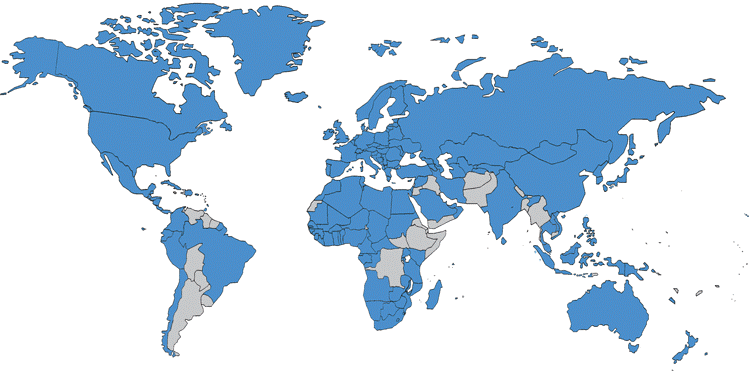Urgent need to address a $1 billion/year problem
One challenge for agriculture in the past few years has been the variation in approvals times of new crop varieties, particularly genetically modified (GM) crop varieties. Typically, a new GM plant variety is submitted for approval in multiple countries at the same time, but each country’s regulatory approval process is different, thus, it takes varying amounts of time for approval to be given in all countries. For instance one such challenge is China’s protocol, China will not accept the submission of a variety approval until the new variety has been approved by another country, usually the country that the developing firm is from. The Chinese regulatory approval process takes a minimum of two years. This lag in regulatory approval affects international commodity trade as the specific variety is not approved for import into China, resulting in Chinese rejection of commodity shipments when the variety is detected in import shipments due to variety comingling. This lack of harmonized regulatory approvals (known as asynchronous approval) disrupts the international trade of grain and oilseeds.
Detection of unapproved GM varieties in commodity shipments cost the international grain trade industry over $1 billion a year. This situation can’t continue, yet practical solutions are few and far between. One potential strategy might be to adopt the concept of the Patent Cooperation Treaty (PCT) to the approval of new plant varieties.

The PCT is an international agreement between 148 member countries, administered by the World Intellectual Property Organization. When a company applies for patent approvals in multiple countries, the company can submit the patent application to the PCT, which then grants up to 18 months of protection, during which time, no country can reject the patent, protecting the applicant from a rejection do to the time lag of various nations’ approval process. This doesn’t mean that the company receives patent approval in all 148 countries, but that the patent application is protected from rejection in all these countries for 18 months. During this time, the company can work with local patent agents to get the patent application submitted in that country, make necessary translations that might be required and to pay the required patent application fees.
What could an adaption of this mean for the regulation of new GM crop varieties? Ideally the PCT could be adapted so that when a public or private developer of a new GM crop variety went to submit it for approval, it could be submitted to a body like the PCT that would allow for the international trade of the variety once it was approved for a period of 18-24 months, which would allow for importing countries to have completed their risk assessment process, but not result in any commodity shipments rejections during this period.
A logistical challenge to this, will be to identify who might champion such a treaty or agreement of this nature. Leading such an effort will potentially take several years of meetings to develop the objectives, scope and structure of any new treaty. A further challenge would be creating incentives for countries that don’t produce GM crops to participate in the efforts to create such an entity. At this point, there is no compelling reason for any of the non-GM countries to participate and this would need to be overcome for any such agreement to be successful.
While there is wide agreement that the present situation can’t continue, it isn’t clear that the incentives to change are substantial enough to encourage participation in efforts to implement change. The frustrating part of this is that the cost of rejected shipments is passed on to you and I as consumers through higher food prices.

